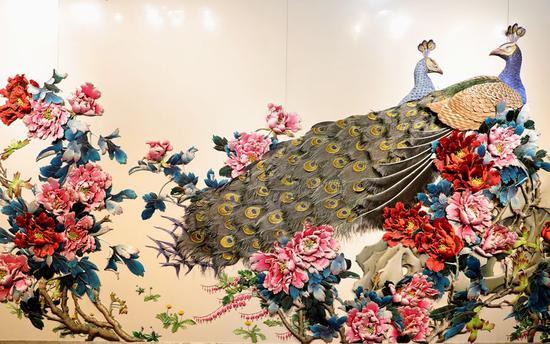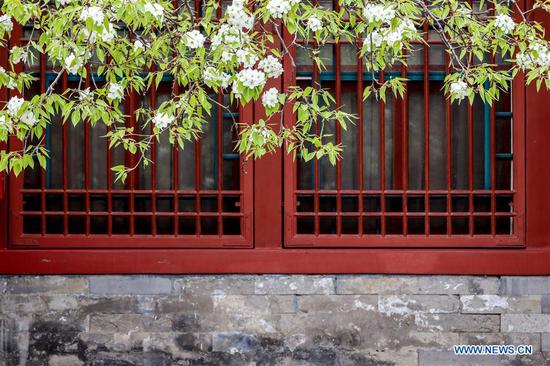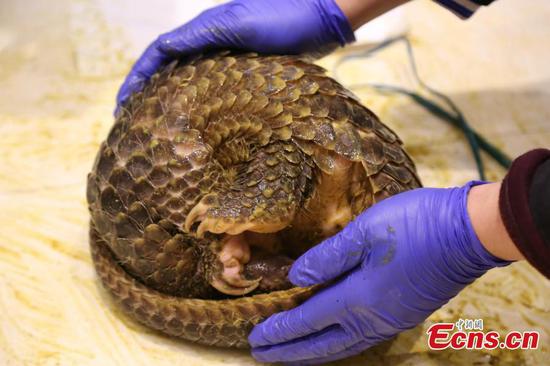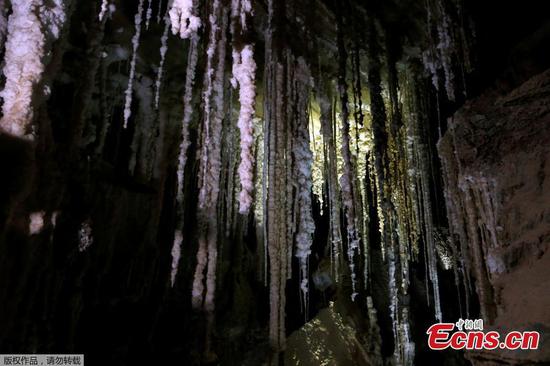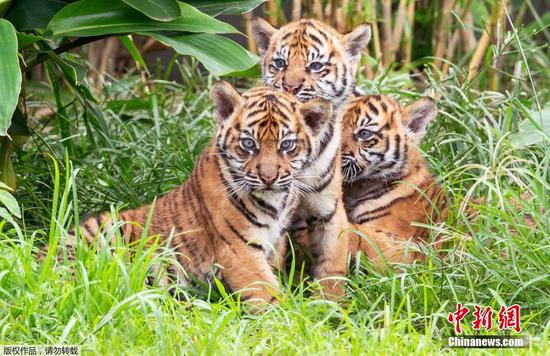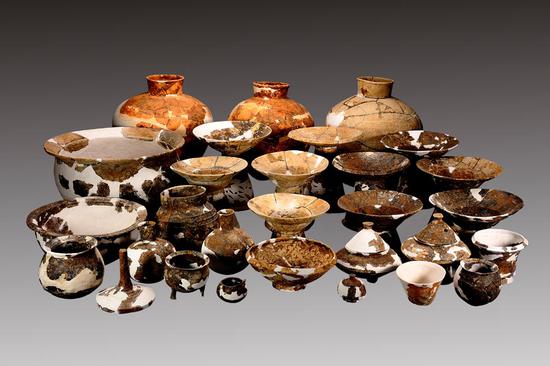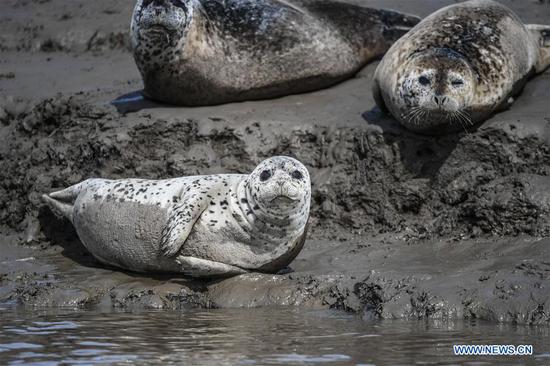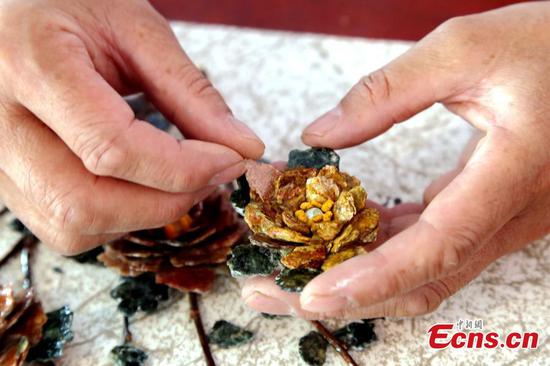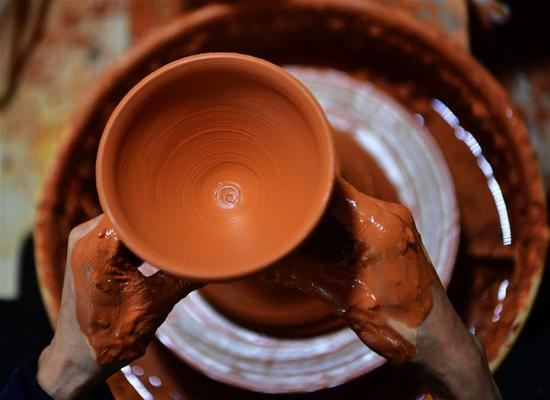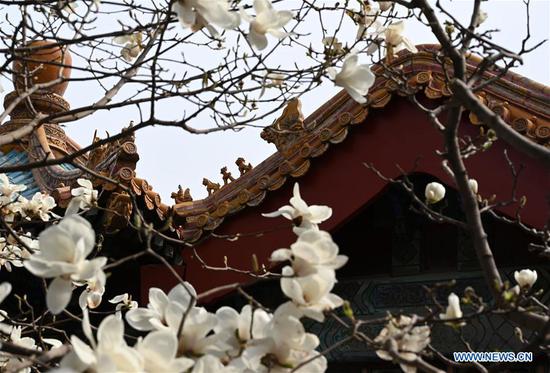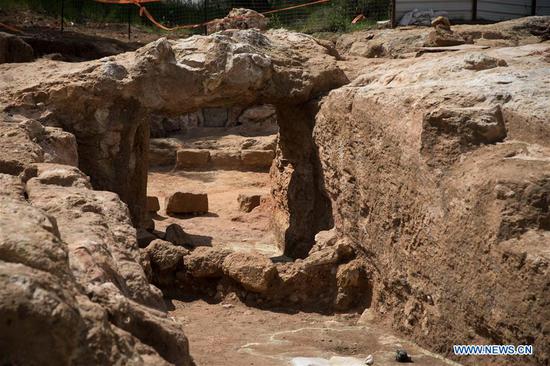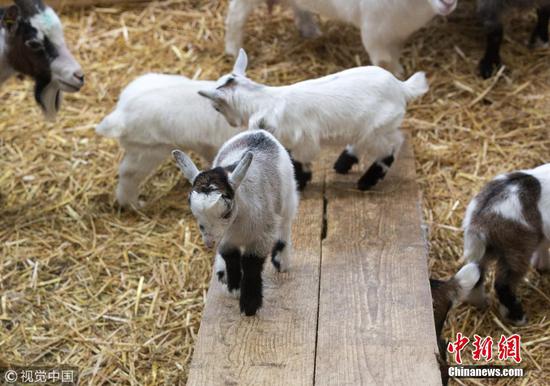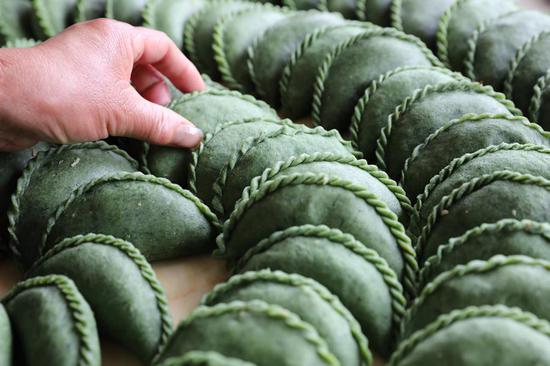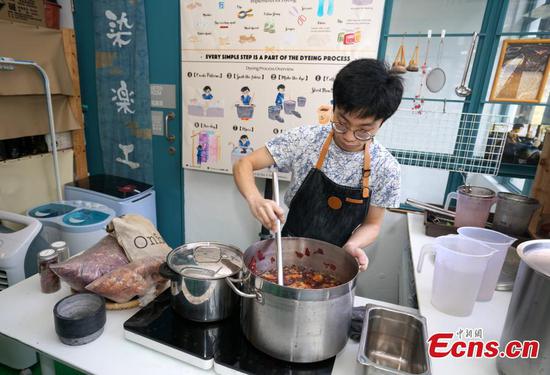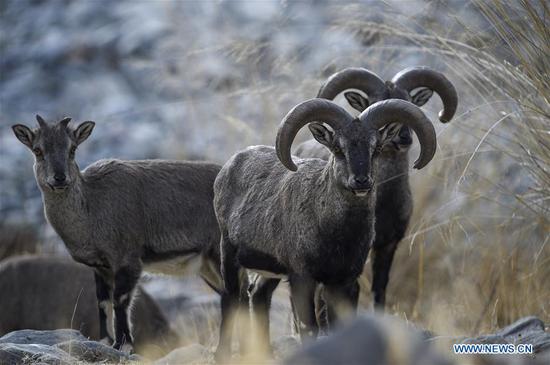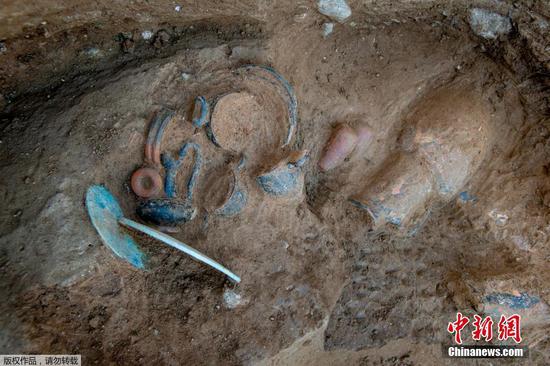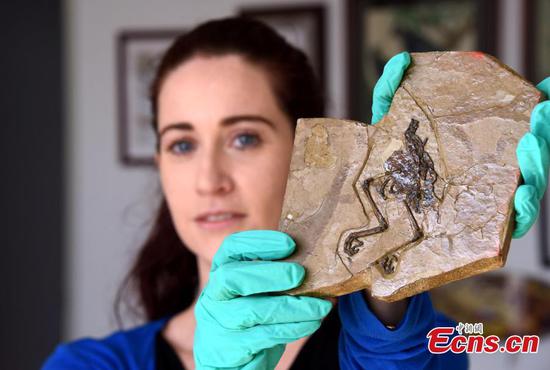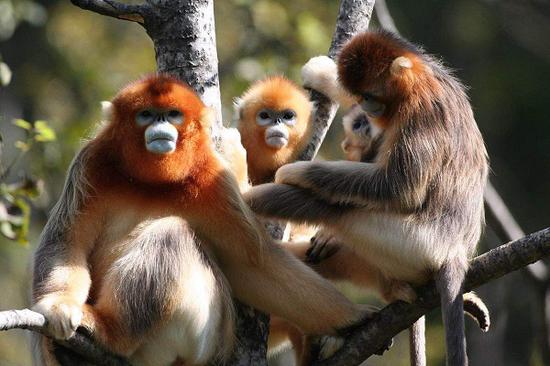
A female golden snub-nosed monkey holds her baby at Shennongjia, Hubei province. (PROVIDED TO CHINA DAILY)
While many human mothers pay big money for nannies to take care of their children, female golden snub-nosed monkeys are happy to mother each other's offspring, according to a new study by Chinese scientists.
What's more, the practice has effectively saved the species from extinction, according to the study recently published in the journal Science Advances.
Nearly 90 percent of golden snub-nosed monkey infants evaluated over five years in Shennongjia National Park in Hubei province were nursed by their biological mothers and other females, usually relatives of the biological mothers such as grandmothers or aunts.
Shennongjia is home to many rare animals including golden snub-nosed monkeys.
Xiang Zuofu, a professor of wildlife conservation at Central South University of Forestry and Technology in Hunan province and one of the leading authors of the study, said the phenomenon called allomaternal nursing is not unusual among mammals including humans, but it's the first evidence in an Old World monkey.
"Without the nanny, the golden snub-nosed monkeys might have become extinct," Xiang said in an interview on Friday. "Golden monkeys are conceived every two years and they bear only one baby a time. If there is no allomaternal nursing, the survival rate of their infants would only be 20 to 30 percent."
However, the rate may soar to over 50 percent under natural conditions when offspring also are nursed by other female monkeys, he said.
Golden snub-nosed monkeys live in high-elevation temperate forests in Hubei, Sichuan, Shaanxi and Gansu provinces. The cold, five-month-long winters, with nighttime temperatures easily dropping below freezing, pose great challenges for them in raising infants, as do strong seasonal changes in the availability of food.
The study shows that 40 out the 46 infants studied received nursing from one or more females other than their mothers. And 22 out of 46 infants were nursed by two or more females.
Four of the six infants who did not suckle from another female died during winter, while only six of the 40 infants who received allomaternal nursing died, the study said.
Xiang said it comes at a great cost for golden snub-nosed monkeys to nurse infants that are not their own since breastfeeding is one of the most energy-consuming things a mammal can do.
The behavior likely arose in close kinship-based groups in which shared care helped the infants survive in the harsh, unpredictable environments, he said.
Such collaborative behavior was necessary in the early evolutionary age of humans, so the study also provides a new perspective on human evolution study, Xiang said.










